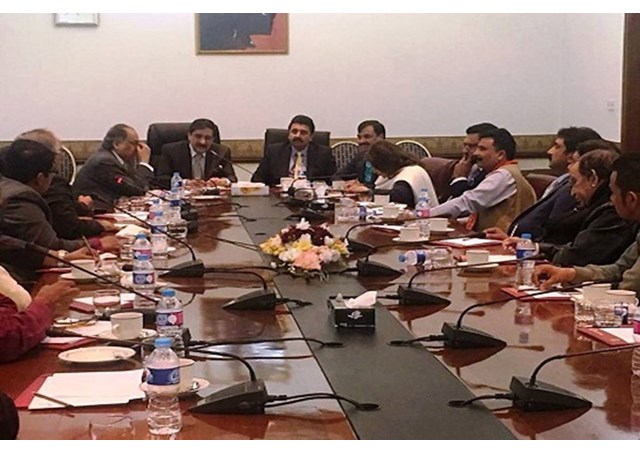
Minorities tell Pakistan's top security chief their concerns

A delegation of religious minorities met Pakistan's top national security adviser to raise their concerns on a range of issues affecting their communities such as the misuse of blasphemy laws and forced conversions. The delegation — which included Christians, Hindus and Sikhs — was led by Senator Kamran Michael, the only Christian minister in Prime Minister Nawaz Sharif's cabinet on March 17.
Bishop Abraham Daniel of Sahiwal said the meeting with top national security adviser Nasir Janjua was a good gesture. "We have expressed our concerns regarding the misuse of blasphemy laws, security and other issues to the national security advisor and hope for better results," the Church of Pakistan bishop told ucanews.com. "Blasphemy laws condemn Christians and other religious minorities to live under the permanent threat of death. We seek not to abolish the law but to stop its misuse," he said. "Not only minorities but Muslims have also suffered due to the misuse of this law and many innocent people have been killed," he added.
Joel Amir Sohtra, a Christian and former parliamentarian, told ucanews.com that everyone showed their full commitment to promote harmony and development especially in education. "Theological seminaries and madrasas in particular are obligated to equip students for meaningful pastoral practice and leadership of their communities amid growing diversity. We must not forget the importance of interfaith understanding in the curriculum of our schools," he said.
Advisor to Prime Minister on National Security (retd.) General Nasir Mahmood Janjua said the government was vigilant and committed to secure rights of religious minorities. "The incumbent government is determined to take all possible measures to protect the lives of the minorities against persecution," Janjua said.
Forced religious conversion has been a major problem for both Christians and Hindus in Pakistan. About 1,000 young women are forcibly converted to Islam in Pakistan every year, Aurat Foundation, a leading women's rights group, said in a 2015 report. Young women from religious minorities are abducted, converted to Islam, and married to the abductor or a third party without their consent and, in many cases, they are under 18.
In November 2016, Pakistan's Sindh province adopted a bill to introduce stringent punishment against forced conversion but it was withdrawn a month later following a backlash from religious extremists.
(Source: UCANews.com)
| All the contents on this site are copyrighted ©. |


